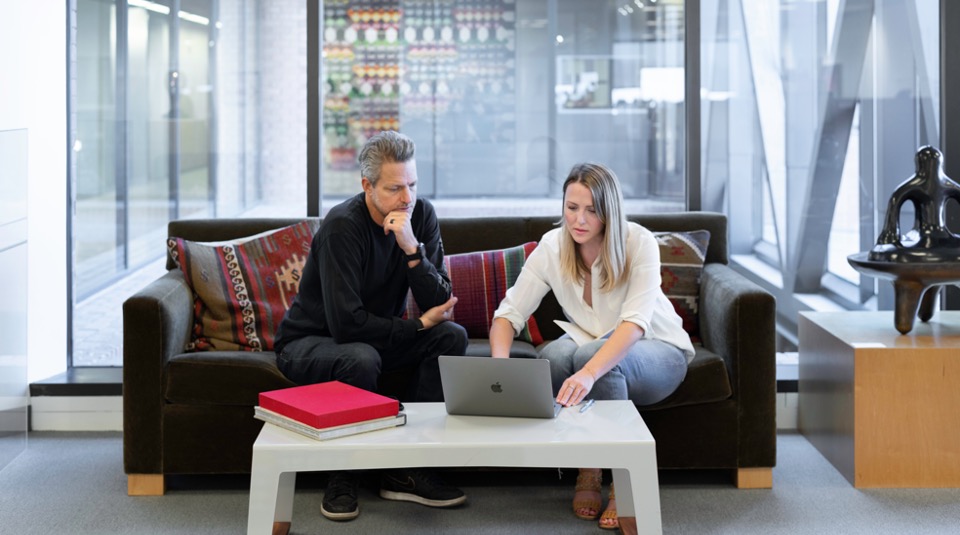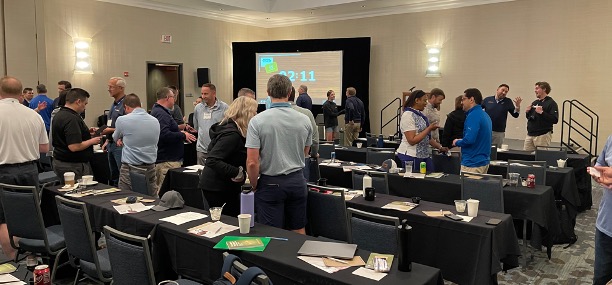Are you struggling with challenging team members?
The right questions can transform them into your most valuable assets.
Every leader will face tough personalities.
But instead of seeing them as obstacles, view them as opportunities to strengthen your leadership toolkit and unlock untapped potential on your team.
Helping your team grow and “stay coachable” isn’t about giving commands or pushing compliance through coercion. It’s about fostering an environment where people feel understood, valued, and open to growth.
As a leader, one of the most effective ways to achieve this is by asking the right questions.
Thoughtful questions do more than guide conversations—they create a space for engagement, reflection, and personal ownership.
This approach opens the door to deeper understanding, allowing you to learn what motivates your team members, what challenges they face, and what support they need to thrive.

More importantly, it encourages team members to share their perspectives willingly, making them feel heard and appreciated. These 15 questions will build rapport, improve engagement, and inspire even the most difficult team members to align with your vision:
1. “What do you want to achieve while you are here?”
This question uncovers a team member’s personal goals and lets you see where they align with team objectives. People are more likely to engage when they feel their goals are acknowledged and valued.
2. “How can I support you in reaching those goals?”
Offering support early on shows you’re invested in their success, not just the team’s. It shifts the dynamic from “managing” to “partnering.”
3. “What excited you most about joining this team?”
Sometimes, reigniting their initial enthusiasm can revive a team member’s engagement. This question invites them to reconnect with their early motivations.
4. “What obstacles do you see that might hold you back?”
Everyone encounters roadblocks. By acknowledging potential challenges, you encourage them to open up about barriers they feel might impede their performance.
5. “I’ve noticed [specific behavior or pattern]; do you think that’s accurate?”
Offering constructive feedback in the form of a question invites a discussion rather than a confrontation. It’s a chance to clarify misunderstandings and gain insight into their perspective.
6. “What kind of environment helps you perform best?”
This question helps you understand their ideal work conditions. Not everyone thrives in the same environment, and small adjustments can have a big impact on productivity.
7. “What type of feedback usually works best for you?”
Knowing how they prefer feedback—whether direct and immediate or more reserved and spaced out—can make your guidance more effective and appreciated.
8. “If I wanted to challenge you to grow, what’s the best way to do that?”
Ask them how they like to be pushed. This empowers them to define their growth path, while letting you tailor your approach to meet them where they are.
9. “Who on the team do you feel understands you best?”
Understanding who they relate to best can provide insight into their dynamics with others. Plus, leveraging these connections can help foster a more cohesive team.
10. “What’s the best way for me to improve communication with you?”
Open, honest communication is essential for trust. By asking this, you show that you’re willing to adjust your style for better understanding and collaboration.
11. “What specific behavior should I hold you accountable for?”
Giving them responsibility for their own accountability encourages a stronger sense of ownership in their work. This approach can be transformative for someone struggling with engagement.
12. “What strengths do you feel you bring to this team?”
Highlighting their strengths helps them see their value. People are more likely to engage when they feel their contributions are noticed and appreciated.
13. “What kind of support will help you meet your goals?”
Rather than assuming what might help, let them tell you directly. This demonstrates that you value their input and want to create conditions for their success.
14. “How do you handle setbacks, and how can I support you in those times?”
Understanding how they cope with failure gives you the opportunity to help them navigate challenges more effectively. It also builds resilience in both them and the team.
15. “What can we do to improve our working relationship?”
End on a reflective note. This question shows openness and willingness to change, making it clear that their success is a partnership and a shared responsibility.

By asking these questions, you’ll begin to turn difficult team members into powerful contributors, enhancing not only their performance but also the cohesion and effectiveness of your entire team.
These questions go beyond basic check-ins; they’re targeted to address specific challenges and establish a foundation of trust and collaboration.
WHY ARE QUESTIONS IMPORTANT?
Because commands and consequences DO NOT drive lasting behavior change!
If you want your people to STAY COACHABLE, use question to improve their awareness…
Better AWARENESS shift beliefs…
Better beliefs shift behaviors…
and BEHAVIORS are what create your team CULTURE!
If you’re ready to take your team’s productivity and engagement to the next level, consider bringing in an experienced and interactive speaker like Sean Glaze for your next professional development event.
With memorable insights and tailored team building exercises, Sean helps teams unlock new levels of communication, accountability, and collaboration—making your investment in team development a powerful one.
– – – – –

Sean Glaze is a leadership speaker, teambuilding facilitator, and author who delivers engaging experiences that ignite your team’s performance. Sean has worked with clients like Cisco, John Deere, the CDC, and Emory University to increase collaboration, boost productivity, and build more positive and profitable workplace cultures.
As a successful basketball coach, Sean gained valuable insights on turning talent into teamwork – and now he travels around the country to share those lessons. Sean’s conference keynotes and custom team building events deliver laugh-out-loud moments and memorable take-aways that transform your people into winning teammates and more effective leaders.
Sean’s books, Rapid Teamwork, The 10 Commandments of Winning Teammates, and Staying Coachable are entertaining parables that help accelerate the growth of leaders and their teams!

Use Connection Chats to Engineer Better Collaboration Across Every Division on Your Team

Effective Leaders Build Trust and Teamwork by Focusing on Leadership Development

The Power of a Sticky Culture in Boosting Organizational Performance and Retention

Are Your Team Standards Seen as Suggestions or Recognized as Requirements?
Books and Resources for Leaders
Check other blog
Use Connection Chats to Engineer Better Collaboration Across Every Division on Your Team
Effective Leaders Build Trust and Teamwork by Focusing on Leadership Development
The Power of a Sticky Culture in Boosting Organizational Performance and Retention
Contact Sean

Connect with Sean

Tell Sean About
Your Event
Tell Sean About
Your Event
"*" indicates required fields











